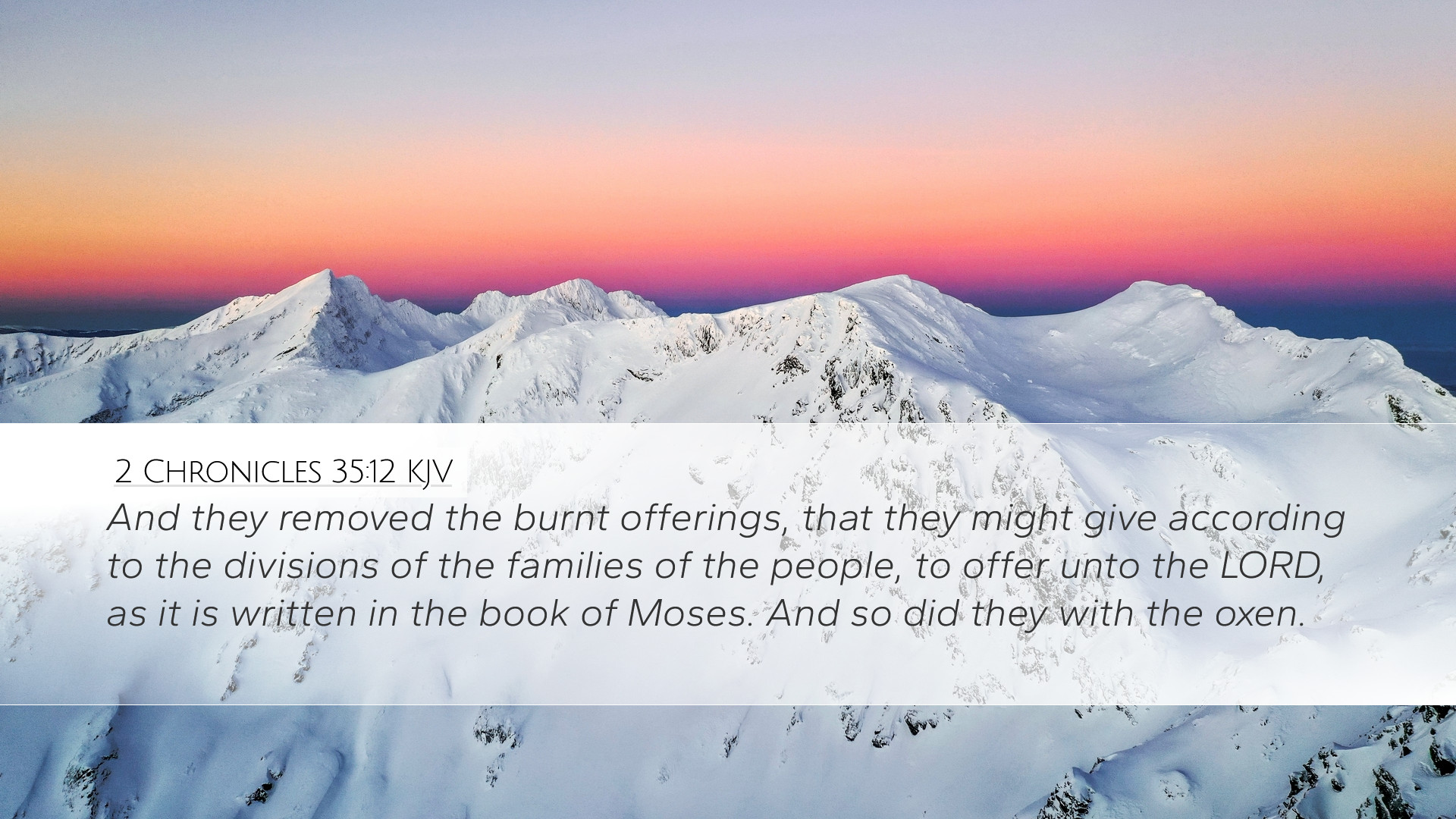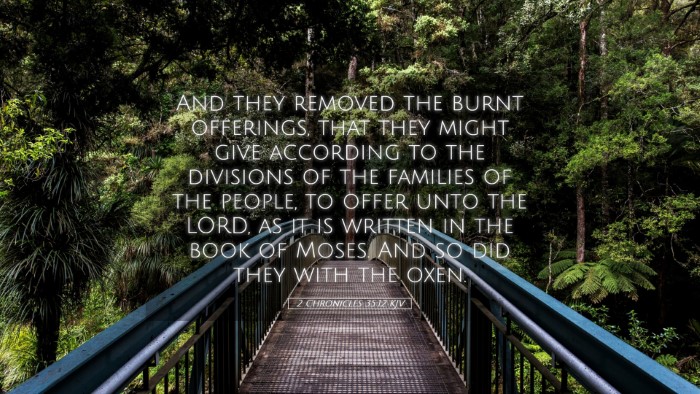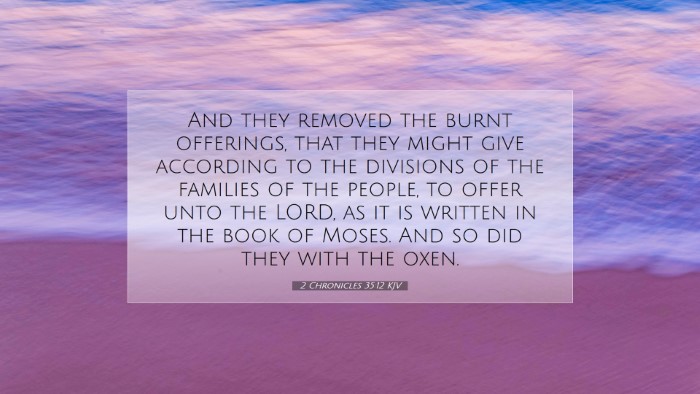Commentary on 2 Chronicles 35:12
The passage in 2 Chronicles 35:12 offers profound insights into the observance of religious practices and the significance of dedication in the life of faith. The following commentary synthesizes perspectives from prominent public domain commentators such as Matthew Henry, Albert Barnes, and Adam Clarke.
Context of the Verse
In this chapter, we see King Josiah reviving the observance of the Passover, a significant feast in the Jewish tradition that commemorated the Exodus and God's deliverance of Israel from Egypt. This event reflects the heart of Josiah’s reforms and the renewed covenant with God.
Analysis of 2 Chronicles 35:12
The specific verse states:
"And they removed the burnt offerings that they might give according to the divisions of the families of the people, to offer unto the Lord, as it is written in the book of Moses.”
Matthew Henry's Insights
Matthew Henry emphasizes the importance of proper order and devotion in worship. He remarks on how the Levites and priests had to oversee the offerings, ensuring adherence to the Torah's regulations. This is a crucial aspect, as Henry points out, reflecting the necessity of following divine ordinance rather than human tradition.
Key Points from Henry:
- Divine Order: The removal of burnt offerings indicates a return to proper procedures as outlined in the Mosaic Law.
- Collective Responsibility: The concept of 'divisions of families' stresses the role of communal participation in worship.
- Emphasis on Scriptural Authority: The reference to the "book of Moses" signifies that worship must be biblically grounded.
Albert Barnes’ Commentary
Albert Barnes provides a historical context, explaining that the revival of the Passover under Josiah’s reign was unlike any other. He highlights the ordination and organization of the Levites and priests, assigning them roles in the sacrificial system. According to Barnes, this systematic approach reflects God's desire for order in worship, indicating that God's people should prepare their hearts and their offerings.
Essential Insights from Barnes:
- Historical Significance: This Passover observance is contextualized within the broader history of Israel, illustrating a moment of spiritual awakening.
- Liturgical Correctness: The arrangement of offerings speaks to the necessity of conducting worship with respect to specific rites.
- Preparation of Heart: 'To offer unto the Lord' underscores the need for genuine spiritual preparation.
Adam Clarke's Interpretation
Adam Clarke’s commentary delves into the spiritual implications of this verse. Clarke notes the significance of the offerings being removed and properly organized, which symbolizes purification and a genuine return to God. He stresses that true worship involves not only the offerings but also the attitudes and intentions of the worshippers.
Clarke's Reflections:
- Symbol of Purity: The act of removing burnt offerings signifies a cleanse in worship practices.
- Attitude of Worship: Clarke emphasizes that the quality of worship is reflective of the hearts of the worshippers.
- Restoration of Community Worship: The organization according to families invites an inclusive approach to worship.
Theological Implications
This verse is critical for understanding worship's theological underpinnings in the life of a believer. The act of offering is an essential expression of faith. A few theological observations include:
- Obedience to God: The necessity to comply with divine regulations serves as a reminder for modern believers to align their practices with Scripture.
- Community in Worship: The emphasis on the families participating collectively reveals God's design for community worship.
- Preparation and Dedication: Before offering to God, there is a call to examine one's heart and motives, ensuring that offerings are presented with sincerity and holiness.
Application for Today’s Church
For pastors, students, theologians, and Bible scholars, this commentary on 2 Chronicles 35:12 serves as a reminder of the biblical standards for worship:
- Revitalizing Worship Practices: Contemporary worship should draw wisdom from scriptural practices, remaining grounded in the truth of God’s Word.
- Community Participation: Encourage church members to engage actively in worship as part of their spiritual family.
- Heart of Worship: Challenge congregants to focus on sincerity rather than mere ritual, emphasizing the importance of their hearts in worship.
Conclusion
In conclusion, 2 Chronicles 35:12 encapsulates the essence of worship: obedience to God's word, the importance of community, and the need for purity of heart. The insights drawn from the works of Matthew Henry, Albert Barnes, and Adam Clarke provide valuable guidance for Christians seeking to deepen their understanding and practice of worship, ensuring that it remains a true reflection of their relationship with God.


